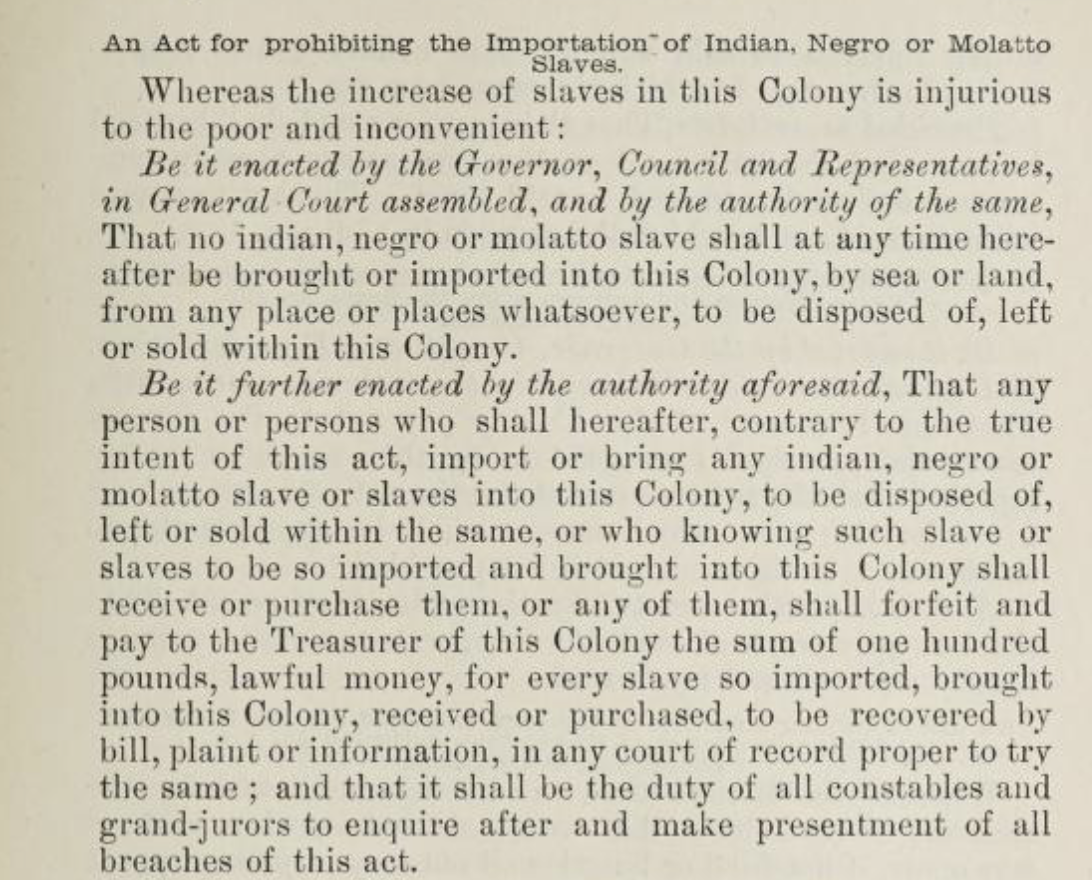
Public Records of the Colony of Connecticut, Volume 14
Summary
At its fall meeting in 1774, Connecticut's General Assembly outlawed the slave trade in Connecticut.
The reason it gave was that bringing more enslaved people into the colony was "injurious to the poor" and "inconvenient." The economy was not strong and there was no longer a shortage of colonists to do all of the work in continuing to build the colony (See Venture Smith's Colonial Connecticut, chapter 20). Some colonists complained that wealthy men were buying slaves instead of hiring and paying wages to colonists who needed the work. The general assembly gave an economic reason, not a moral reason like Rev. Levi Hart argued in his sermon in Farmington the month before the General Assembly met.
The penalty for bringing an enslaved person into the colony was £100 (British pounds) payable in lawful money (paper money issued by Connecticut, see Venture Smith's Colonial Connecticut, pages 32 - 33.)
